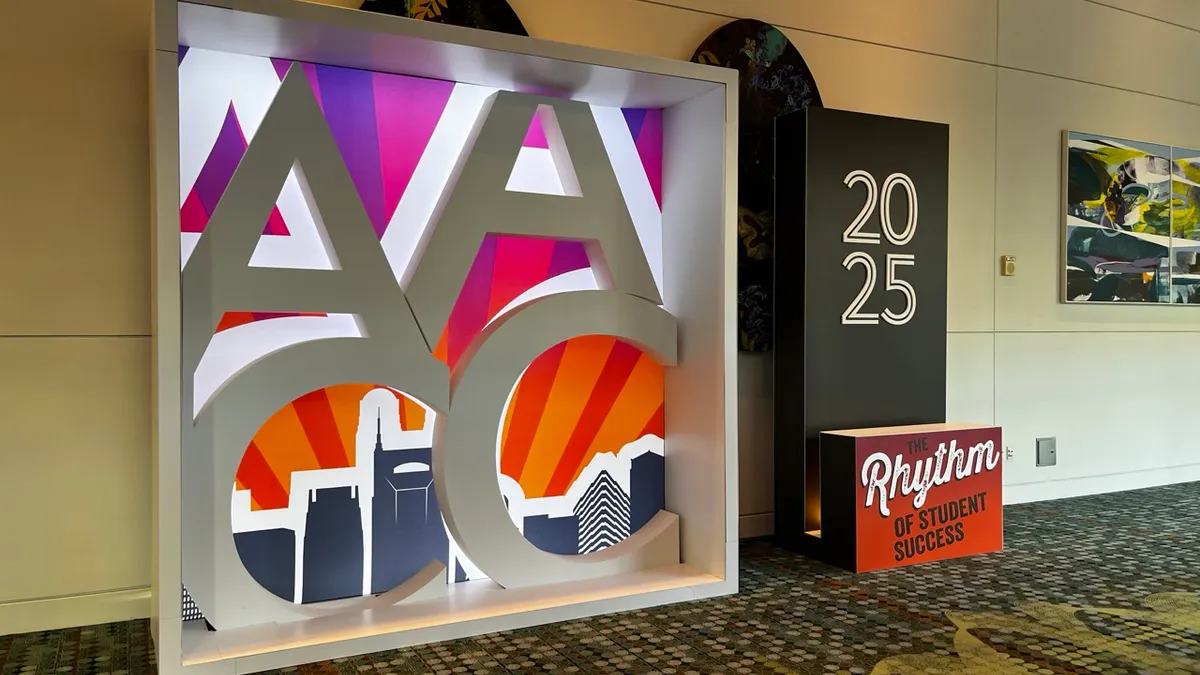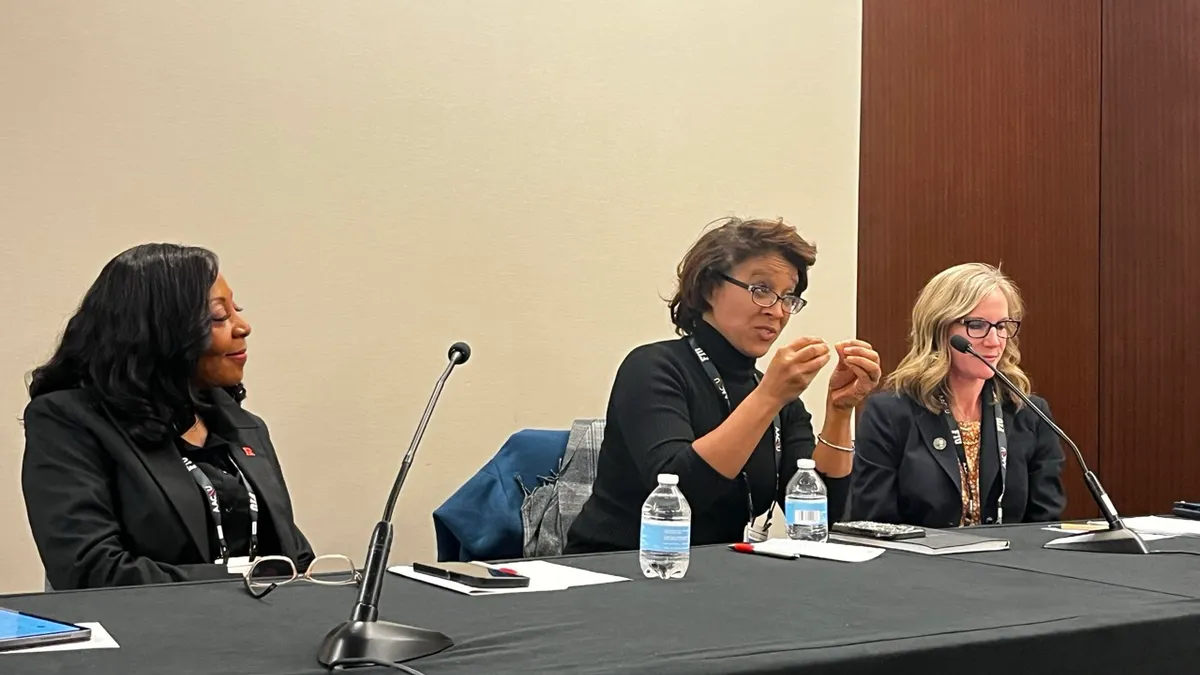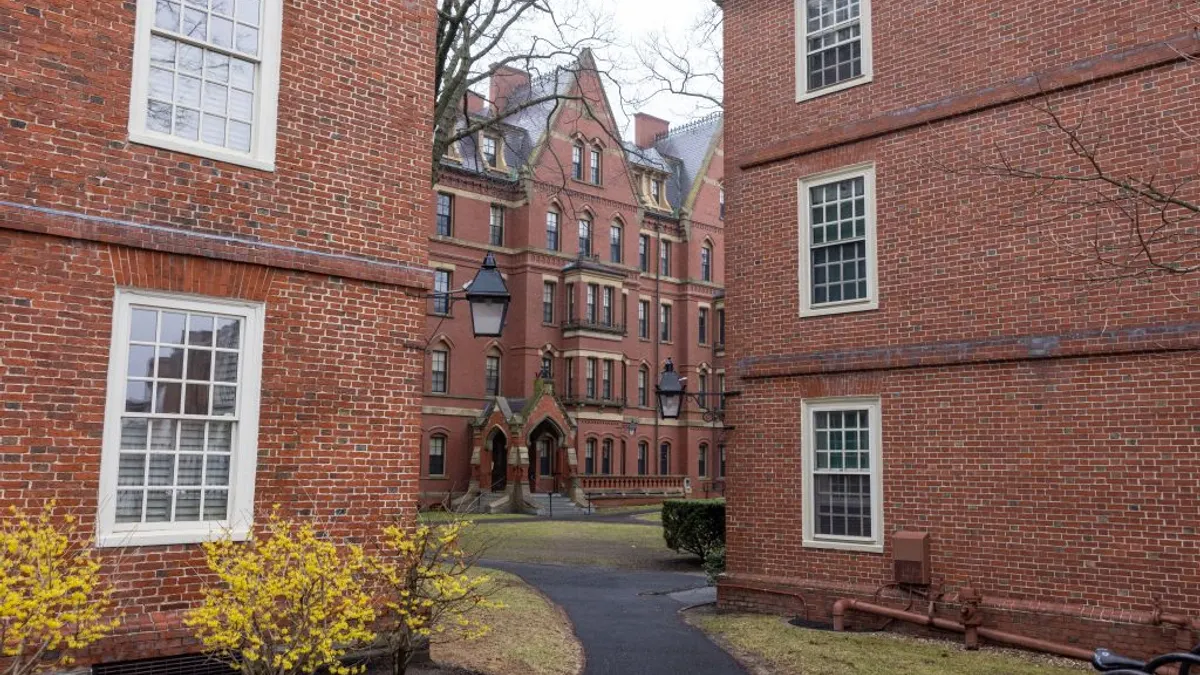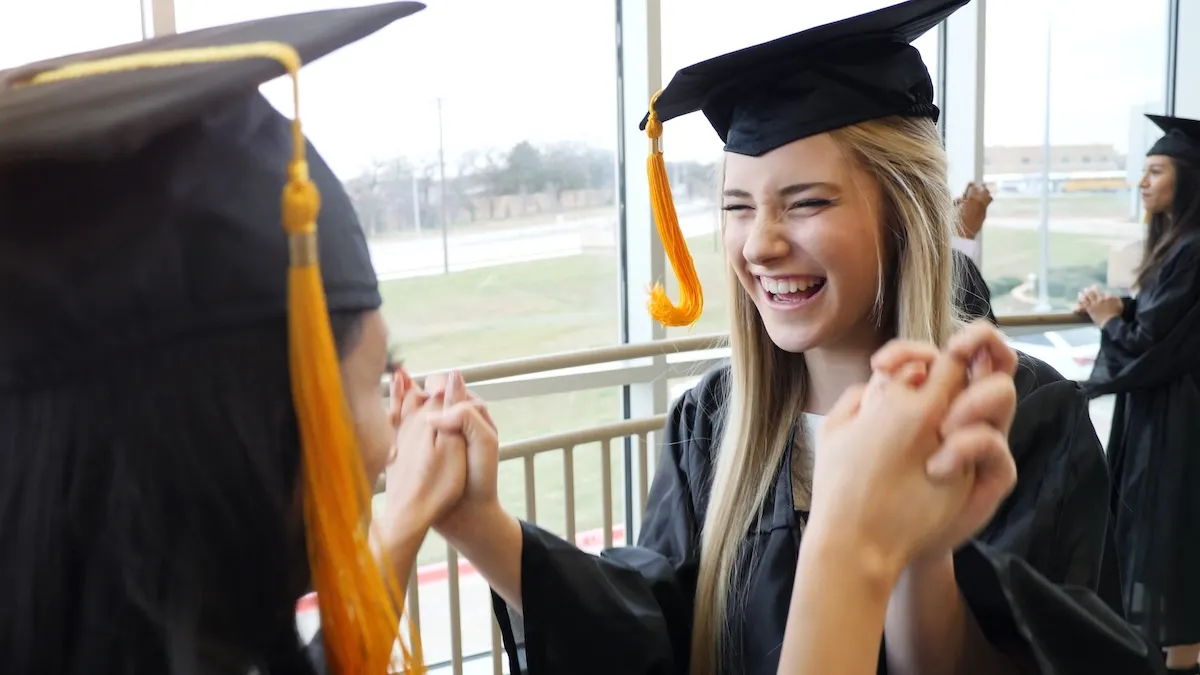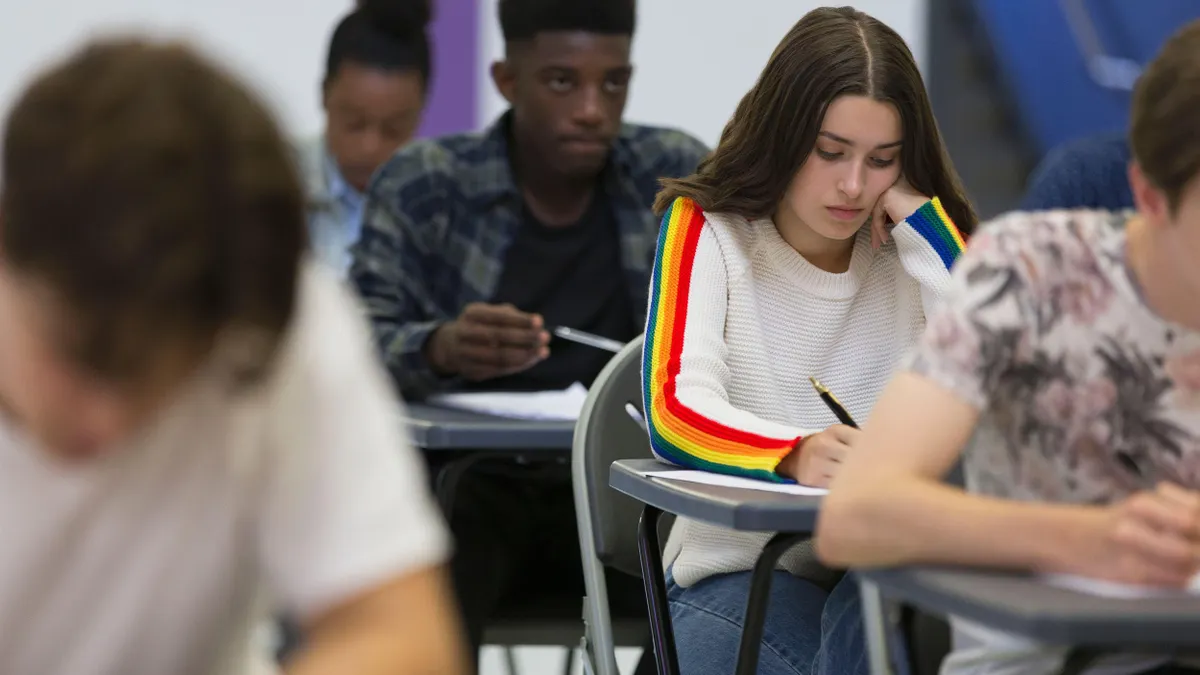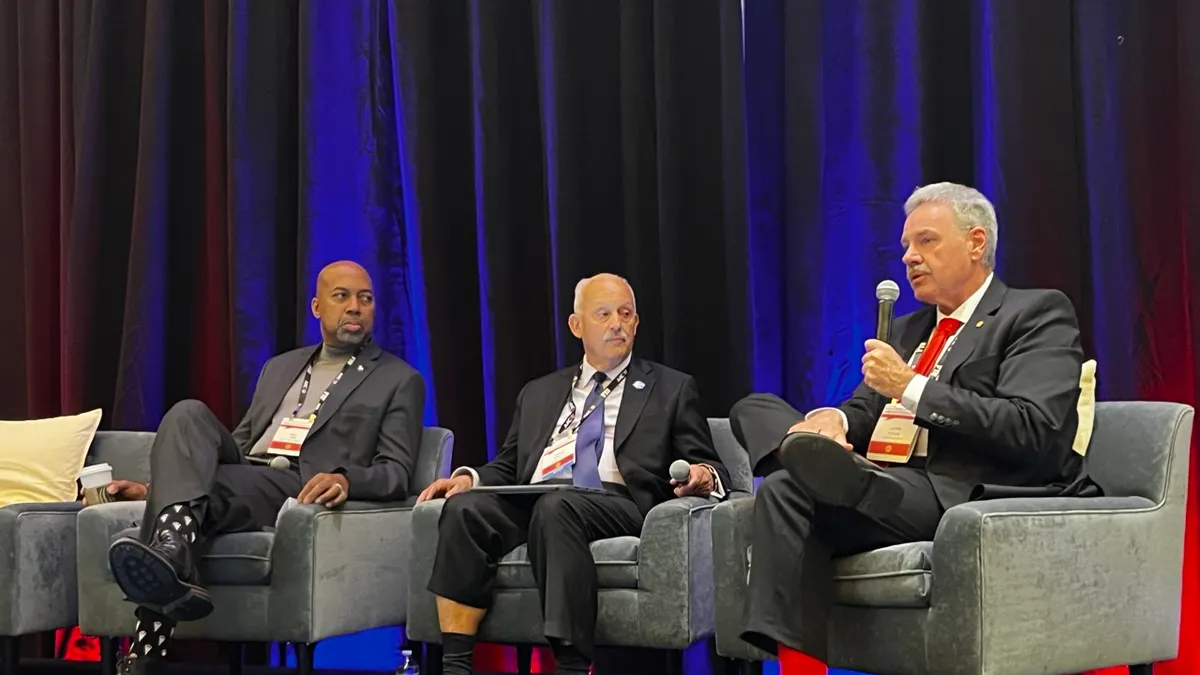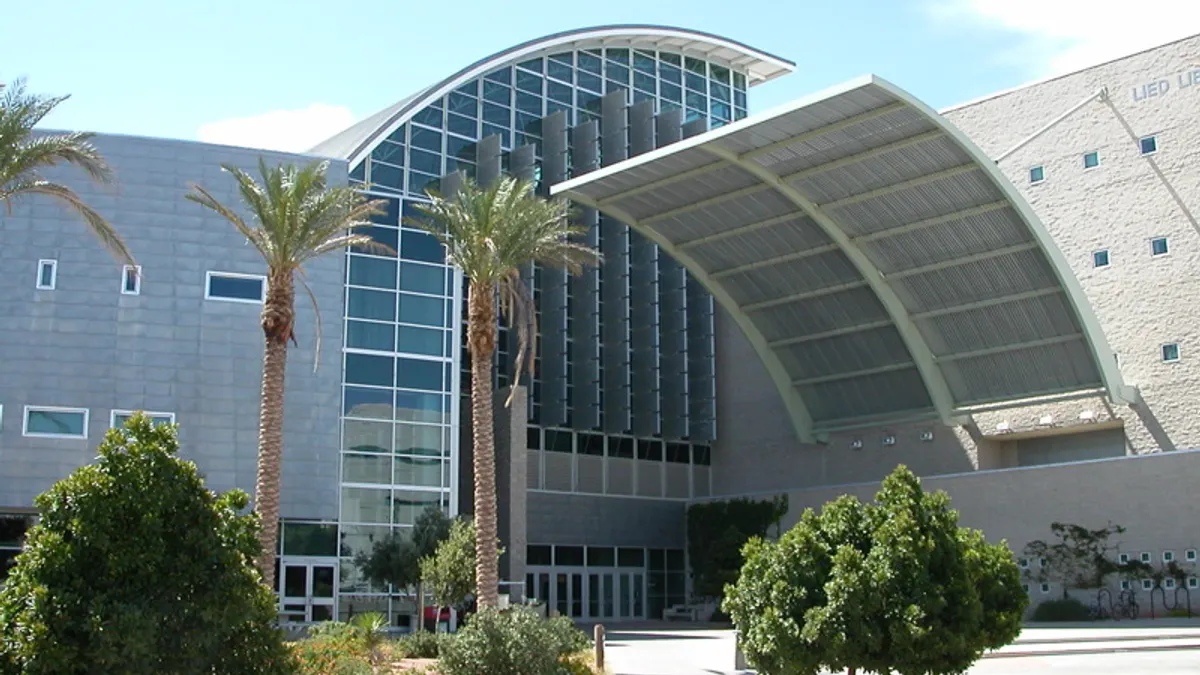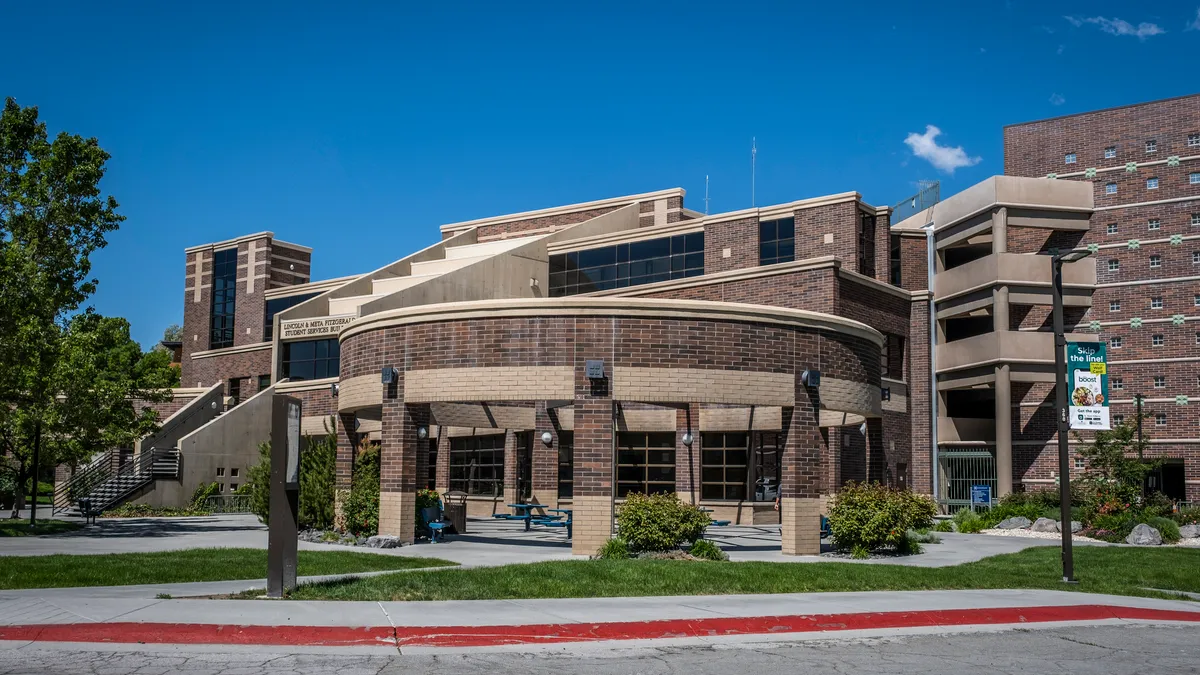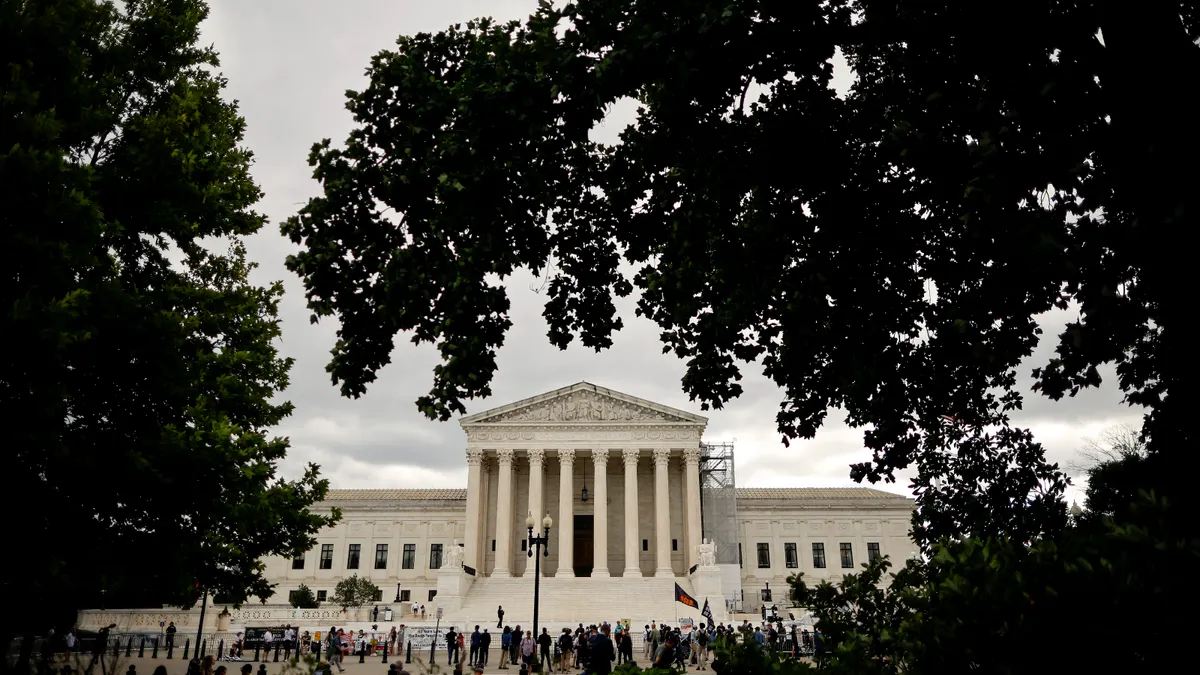NASHVILLE — College leaders understand the value of a completed financial aid application, but they often face hurdles helping students navigate the slog of paperwork.
Holyoke Community College, in Massachusetts, encountered this problem in spring 2023. That semester, 47% of attendees at the college’s new-student orientation had not completed their Free Application for Federal Student Aid, institutional leaders said Monday at the American Association of Community Colleges′ annual conference.
Along with low levels of FAFSA completion, they also noted that dozens of students who had otherwise completed their financial aid applications were missing one crucial piece of paperwork — which became the deciding factor between the state completely covering their tuition or not.
Holyoke implemented an early alert system to address challenges among both groups. By proactively reaching out to new students and inviting them to one-on-one advising sessions, officials raised FAFSA completion rates among that cohort by 14% for fall 2023 and got the appropriate state aid to those who were eligible.
Missing paperwork
Enrolling some 3,700 credit-bearing students, Holyoke is located in a college-dense area with about 20 other higher education institutions, according to Lauren LeClair, the community college's associate director of admissions technology and operations.
"We fight for our students. We wanted to make sure that we were doing right by our students and getting them aid," she told conference attendees. "New students probably had no idea that they didn't have paperwork that was needed."
Many also didn't know where to go to learn more about financial aid, said Kim Straceski, Holyoke's associate director of financial aid compliance and customer service.
"They're getting different information from different offices, and not always coming to meet one of the experts in financial aid," she said.
In spring 2023, the college lacked a way to alert students or financial aid staff about missing financial aid documents, according to education consultancy EAB. Holyoke employed the group to establish a new customer relationship management system to address these issues.
The new system pinged students to alert them about the missing paperwork and prompted them to schedule an advising appointment to fix the error. An adviser also followed up with a more detailed email, highlighting that they could help students hunt down the needed documents.
"Students do open emails — if it's important enough," LeClair said.
On the back end, the system allowed both financial aid staff and academic advisers to see notifications to students and any progress they made completing their forms. Before, the two offices were disconnected from one another in this process.
By fall 2023, 67% of students who received early alerts had completed their outstanding aid requirements.
The early alert system also helped new students learn where to seek help for any potential financial aid issues that arise in the future.
MassReconnect
At Holyoke, almost 600 students are enrolled in MassReconnect, a state-run free community college program for nontraditional students. Since 2023, state residents ages 25 and older who do not have a degree have been eligible to attend community college for free, so long as they complete the FAFSA.
Early results indicate the program has boosted the number of adult learners enrolled at Massachusetts community colleges, especially those from households earning below the state's median income.
But Holyoke identified a problem for about 40 of its MassReconnect students — they were missing one key document.
"All of these students need to sign an affidavit attesting to the fact that they have not earned a prior degree," said Straceski.
But for many, that requirement was not made clear in the MassReconnect program’s promotional materials.
"When students are reading about it on the state's website and they're hearing about it in the news — nothing about this affidavit was ever mentioned," Straceski said.
Holyoke couldn't distribute state funding to cover the students' costs without this documentation. But thanks to the early alert system, Straceski said the college received all 40 affidavits by deadline.
Beyond that paperwork gap, the system has helped the college engage with more MassReconnect students. About half of them, 294, have since used the software to schedule one-on-one advising sessions to answer financial aid questions. The college attributes this to improving students' ability to stay enrolled.
It also has helped officials identify students who may be eligible for MassReconnect. Even if students don't ultimately enroll in the program, Straceski said, communication from the college on the topic has garnered "a lot of FAFSA completions.”


